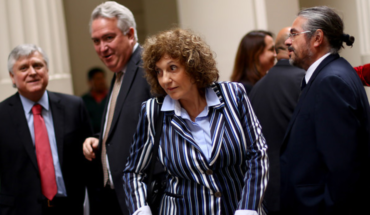It changed the way we live, communicate, face problems. Science had to act quickly to deal with the pandemic, which now determines our daily lives. The planet is undergoing accelerated changes and humanity’s call is to be alert and act with evidence-based decisions in these situations. For this reason, the new version of Congreso Futuro (CF) will put on the table the necessary discussions to coexist in this new habitat.
Between January 17 and 21, and under the slogan “Learning to Live Together”, the new edition of the scientific dissemination event will be attended by four Nobel Prize winners and around 80 of the most important personalities of science, humanities and art. The eleventh edition, organized by the Senate of Chile -through the Future Challenges Commission- and the Encuentros del Futuro Foundation (FEF), will present a range of exhibitors who will make available the best of their experience to expand the frontiers of citizen knowledge and dialogue about the changes that the planet and its societies will have.
In this regard, the president of the Future Challenges Commission of the Senate, Guido Girardi, said that in the eleventh version of the Future Congress “we will talk about Learning to Live Together, how to face the challenges, how we have to change our way of relating to nature and with the rest of living beings, how to change our development models to coexist differently, even with artificial intelligence. All these great intellectual challenges can be seen in congresofuturo.cl.”
About the event are varied the innovations that are contemplated for this year, both in its content, as an editorial line, alliances, and also in its execution. The executive director of FEF, Nicolás Fernández, explained the progress of the next version. “Like last year, Congreso Futuro will bet on a comprehensive platform that adapts to today’s health possibilities.” The activity includes almost a thousand square meters of a stage in 360 degrees, and one hundred and ninety square meters of high definition LED screens, which will allow a connection and interaction between exhibitors and the public that will be connected to the event.
Among the more than 80 exhibitors will be the winner of the 2019 Nobel Prize in Economics, Esther Duflo, who was recognized for her studies on inequality within developing countries, and who currently serves as director of the Department of Economics at the Massachusetts Institute of Technology (MIT); the specialist in technologies, Nicolás Mialhe, co-founder of “The Future Society”, and member of several international institutions dedicated to the ethical development of Artificial Intelligence, as well as social welfare based on the application of this technology; Timnit Gebru, computer scientist and leader in research on ethics and algorithmic biases in AI; Dr. Anthony Fauci; director of the U.S. National Institute of Allergy and Infectious Diseases and health adviser to the White House; Tedros Adhanom, director general of the World Health Organization, and Gonzalo Moratorio, Uruguayan virologist who created one of the first tests to detect the presence of COVID-19 in the body.
In other subjects, academics such as Teresa Paneque, astronomer and scientific popularizer; Patricia Muñoz, Ombudsman for Children, and the current president of the Constitutional Convention, Elisa Loncon.
The head of programming of Congreso Futuro, Carlos Vásquez, pointed out that “this year’s program is aimed at rethinking the ways in which we live, not only between human beings, but between species and with the environment. We want to give a much bigger focus to the idea of reality that we are building together.”
Meet the exhibitors in this link and the complete program by clicking here.





